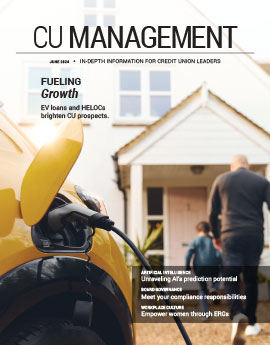4 minutes
Six strategies to help you work harder not longer so you can take a vacation!
 When was the last time you took a vacation? Not just a few days off to get things done around your house or to run errands, but a real break away from work?
When was the last time you took a vacation? Not just a few days off to get things done around your house or to run errands, but a real break away from work?
I just booked a week-long family vacation, and my family is counting down the days. I love my work, so if I don't purposefully schedule vacations, I can get caught up in scheduling clients and programs and not create space in my calendar for time off. When I take a real break from my normal routine and work, I always return feeling renewed and re-energized, and with more clarity to handle the daily demands.
Back in the 1970s, researchers predicted that technology would increase efficiency and reduce our workloads so we could take more time for rest and leisure. Yet more professionals are now taking their smartphones and tablets on vacation to keep up with the constant demands of work. The result is a society of leaders who are in constant overdrive, on the verge of burnout, and disconnected from their personal lives.
Compared to 1970, American managers work an additional month per year. We take the least amount of vacation of all developed countries around the world. Yet time away from the demands of work may be the best productivity booster for your organization.
One study found that employees sleep better after taking vacations and are 30-40 percent more alert on the job when they return. Rest and relaxation reduces stress and burnout, reduces health issues and tends to increase productivity and creativity on the job. The result is highly engaged employees, lower turnover and higher profits.
U.S. workers spend 300 more hours at work each year than western Europeans. While we may not be able to take as much vacation time as Europeans, we can learn to work smarter, not harder. You can increase productivity and reduce stress even without taking a long vacation.
Below are six strategies to increase productivity without overwork:
Designate core productivity times. Set aside blocks of time (I call these "productivity sprints") for big projects or planning in your week. During this time, don't check emails or answer calls; focus completely on the task at hand. For most people, this takes deliberate practice. Start with scheduling half-hour blocks and work your way up to 90-minute blocks of time. Be careful of falling into the "I don't have time" trap. Being productive and getting the right results requires being purposeful with the time you have.
Reduce distractions. Turn off your email and phone notifications and close your door. Let your employees know - you are going to close your office door to concentrate on an important project, and that unless it's an emergency, you will be available in two hours. I have clients who have implemented this practice and report a significant increase in productivity and decrease in stress.
Work somewhere else. Leave your office when you really need to concentrate and go somewhere with no distractions so you have time to think and focus. It could be a conference room, a library, a coffee shop, or your home. I did this frequently as a human resources executive by taking my laptop to the coffee shop across the street to get uninterrupted focus time. I got more done in two hours at the coffee shop than I did in a whole day in my office.
Institute "quiet time." Take a page from organizations like IBM, Deloitte & Touche and Intel by establishing "Quiet Time" in your department or organization. This is a block of time where employees isolate themselves for "thinking time" and don't send or receive emails, talk on the phone, or attend meetings. Intel has also instituted a "no email Friday" for engineers. The result: improvements in effectiveness, efficiency and quality of life.
Take mini "holidays." If you can't schedule a prolonged vacation, schedule a long weekend every few months to get out of your daily routine and relax. You'll feel refreshed and energetic, which will give you the focus and stamina to get more done.
Encourage vacations. In recent studies, employees say - work responsibilities and workload were the primary reason for not taking vacation time. As leaders in organizations, we have an opportunity to model work habits. Use your vacation time each year to refresh, and encourage the same of your staff. You will reap the rewards of higher productivity, decreased turnover, and higher employee satisfaction.
We've created a "vacation countdown" calendar to post in our kitchen that gets the whole family excited about our trip to Cancun. My daughter loves to cross each day off as we get closer to our special family time. I have never met a person who regretted taking time away to go on vacation.
Laurie J. Maddalena, MBA, CPCC, PHR, is a certified executive coach, consultant and founder of Envision Excellence http://envisionexcellence.net/, LLC, Rockville, Md. She was also an HR executive at a $450 million credit union. Contact her at 240.605.7940 or lmaddalena@envisionexcellence.net.








